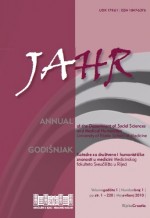The Force of Law: Genetic Data Protection in Central and Eastern Europe
Keywords:
Biobanks, genebanks, data protection, forensic genetics, Central and Eastern EuropeAbstract
During the past decade the collection and processing of human biological samples and that of related data gained an increasingly important role in both medical research and the forensic field. Th e European Union legislator tried to keep up with this phenomenon, and attempted to reconcile freedom of research in the classical biobank context and the principle of avail-ability in the criminal context with European Union-wide data protection safeguards. In the lack of a sufficiently homogeneous legal framework European jurisdictions greatly differ in regulating the protection of genetic data. Two main country groups can be identified: Member States can be grouped along the question whether they have or do not have specific biobank laws. In countries that do have such laws, comparison is easier, and they are following international standards. Whenever such specifi c laws are lacking, not only the identifi cation of the respective legal rules, but also their comparison is diffi cult, since the interpretation of these vague and more general laws is left to the stakeholders, law enforcement agencies, and fi nally to the judiciary. Since in this latter group of countries however relevant judicial cases are very rare, the interpretation of the codes and other comprehensive laws happens on an ad hoc basis, and remains invisible. The differing legal and ethical issues concerning patients’ data in the classical context, and suspects’, convicts’, victims’ and other persons’ data protection in a forensic context will be addressed in light of the 2003 International Declaration on Human Genetic Data. Actual examples from Central European jurisdictions will highlight the related theoretical and practical problems both in terms of bioethical research and forensic sciences on the one hand and data protection and privacy on the other
Downloads
Published
Issue
Section
License
Authors who publish with this journal agree to the following terms:
- Authors retain copyright and grant the journal right of first publication with the work simultaneously licensed under a Creative Commons Attribution License that allows others to share the work with an acknowledgement of the work's authorship and initial publication in this journal.
- Authors are able to enter into separate, additional contractual arrangements for the non-exclusive distribution of the journal's published version of the work (e.g., post it to an institutional repository or publish it in a book), with an acknowledgement of its initial publication in this journal.
- Authors are permitted and encouraged to post their work online (e.g., in institutional repositories or on their website) prior to and during the submission process, as it can lead to productive exchanges, as well as earlier and greater citation of published work (See The Effect of Open Access).



